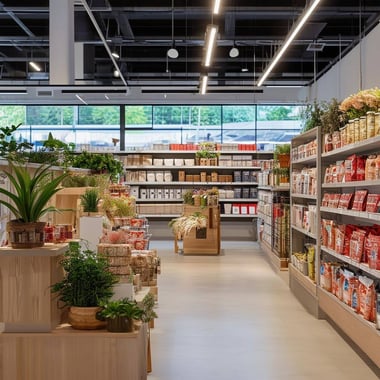
Make me better, Make me different, and Make me Profitable - The Three 'Must-dos' of Retail

There is a way to buck the trend of a declining retail sector, according to Phil Bonanno, Partner at Next Reality Group. These three furies of retail will combat the record numbers of closings, seemingly constant revenue and profit downgrades, and the rising cost of living depressing consumer sentiment and spending.
Make Me Better
It's always darkest before the dawn, and it's clear Coles has made it through its own dark night and is growing nicely in the light of day. Why? New leadership put a mandate on improving store conditions, customer engagement, sharpness in ranging and pricing. They have, to borrow a phrase from neuro-linguistic programming, woken up the gatekeeper. From the earworm jingles, to the KVI (key value item) focus to re-booting fly-buys, it's clear management know how to increase customer engagement. This has been a case study in retail business improvement with specific focus on customer cut-through. They discovered the worst outcome for a marketer is not getting passed over for another offer, it's not being considered at all.
The point: continuous improvement means improving your own game, not worrying about your competition so much. What are the biggest barriers to purchase of your offer? How are you addressing these? How will you wake the purchasing gatekeeper?
Make Me Different
We know new market entrants always have the benefit of "newness" on their side - Zara, Top Shop, The Gap and other retailers coming into the market are the shiny new toys that shoppers want to play with and spend on. But the "wow" factor can be short lived, just ask Zara, who went from "One Direction" fandom with its CBD launch to a ho-hum opening at Chadstone.
Then consider Costco. It's received as much press as any chain with fewer than five stores is ever likely to get. Yet, in its fourth year of operation, it continues to grow and garner both excitement and paying customers. On a recent midweek, midday visit, the car park was jammed and the trolleys were full.
All corporate reports have been resoundingly positive, so what's the big draw? There's nothing else like it and it's hard to replicate. Once upon a time there were numerous warehouse club operators, and now there are three in the world, with the best of them being Costco. It sticks to its formula; providing differentiated value to membership, through a unique profit model.
In consumer goods, another client of ours, a small manufacturer of sauces, dips, dressings and other food products is making headway in the highly competitive mayonnaise segment. Without giving away the details (who ever gives up the recipe for the secret sauce!), it's fair to say that our new food service and retail offering is truly different from anything the larger producers have to offer - it's cutting through in a category that has stagnated, bereft of innovation-led difference or new consumer benefit beyond the cost/quantity continuum.
The point is that differentiation isn't just a marketing communications strategy; it needs to be core to the business.
Make me Profitable
Clearly, operational improvement and differentiated offers drive advantage. But the ultimate acid test comes from the till. There's no room for waste in the 2012 retail or consumer goods equation - having sat on both sides of the fence, I reckon retailers are more attuned to it, and consumer goods companies are catching up quick. In fat times or lean, it's essential for all business leaders to challenge (reasonably) all costs. Our goal is to improve category value.
Not all gloomy
The good news is there is growth in the market. We are embarking on a direct to consumer online journey with one of the bigger bottled water brands in the market. The brand has great resonance, the packaging is unique, and the taste profile is totally distinct. It's too early to tell how this will go, but the early returns are very strong.
It's not all online either (though we love the e-tail revolution that's taking hold!), but it is more specific and focused than its been; the fragmentation of media and communications has led to fragmentation of demand. This means understanding and marketing to individuals or tighter segments than we've ever done before.
Consumer brands and retailers have been slow to recognise it, understand it and adapt to it. Social media and shopper marketing platforms that merely use new channels to drive the same campaigns and messages are not likely to achieve success. However, more and more marketers are understanding that new demand is more global in its awareness and more local in its preferences than it's ever been. Do you want to serve that demand?
Next Realty Group specialise in business and brand building.
Related


Stay ahead of the EOY crunch with contracting
Even though December comes around the same time every year, somehow it still manages to hit us with...
.jpg?width=352&name=FMCG%20Sales%20-%20Blog%20(3).jpg)
FMCG Sales: 2025 Trends & Hiring Challenges
In a market defined by consolidation, and caution, FMCG Sales leaders are facing increased pressure...

 Accessibility
Accessibility